Capacities - A note-taking app where each piece of info is treated as an “object.” I watched a demo video and don’t think it’s a good fit for me, at least for now. Noting it here for future reference.
Capacities - A note-taking app where each piece of info is treated as an “object.” I watched a demo video and don’t think it’s a good fit for me, at least for now. Noting it here for future reference.
✨ I updated my Tools page.
A whole bunch of blogging tips and tools curated by Robert Birming
Stop Giving af and Start Writing More from Joel Hooks
🍿I watched Practical Magic (1998) for the first time. I thought it was just okay. Way less magic than I expected, considering the title and the main characters are witches.
Check out these zines I got in the mail. 📬
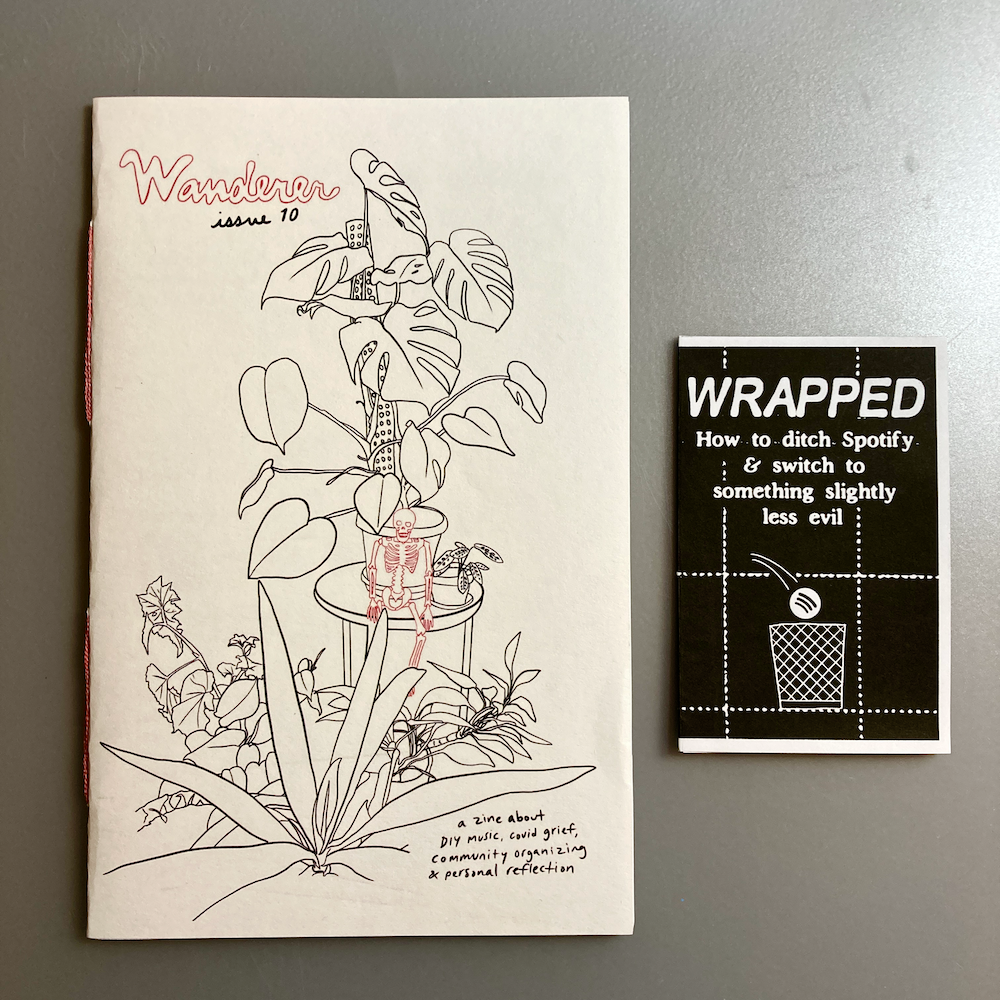
From Craft or DIY:
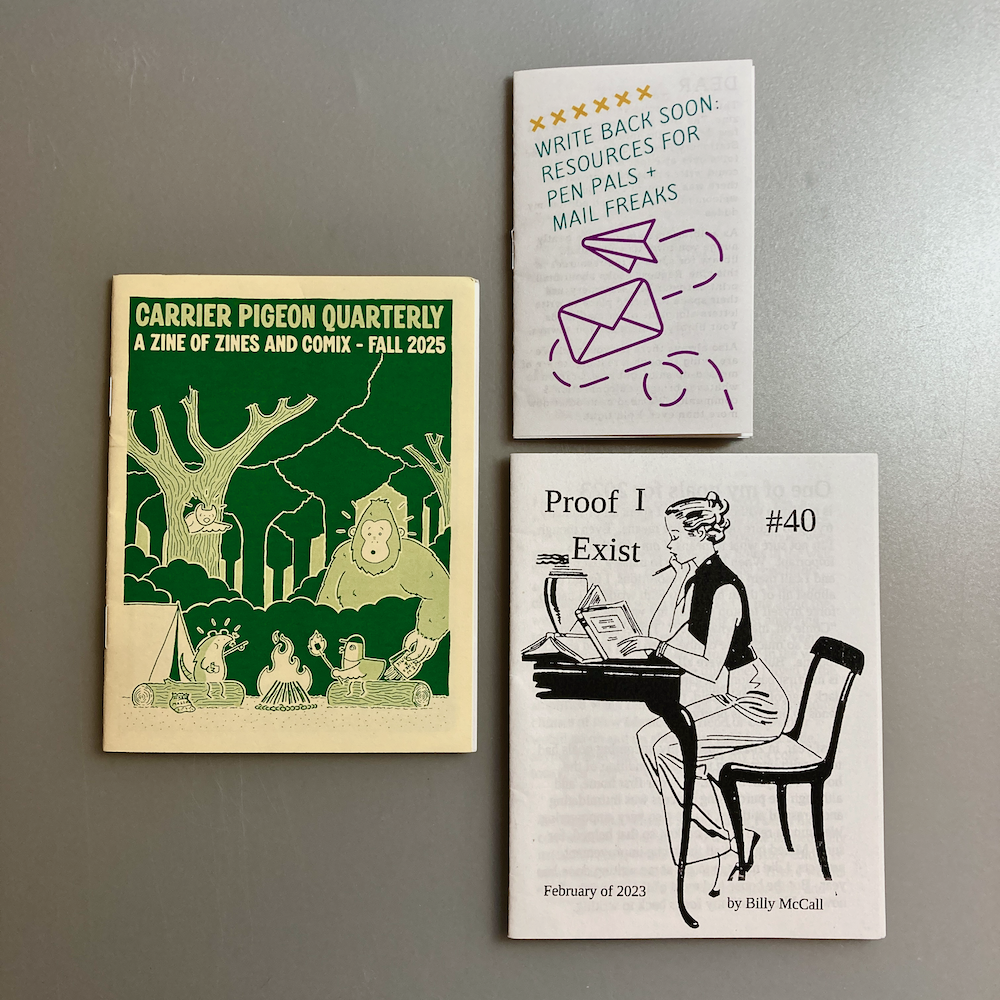
Carrier Pigeon Quarterly (Fall 2025) - A directory of new zines and comics, plus zine-related reviews and interviews.
Write Back Soon is a mini zine about snail mail projects.
Proof I Exist #40 is a perzine about connection and trying not to feel alone.
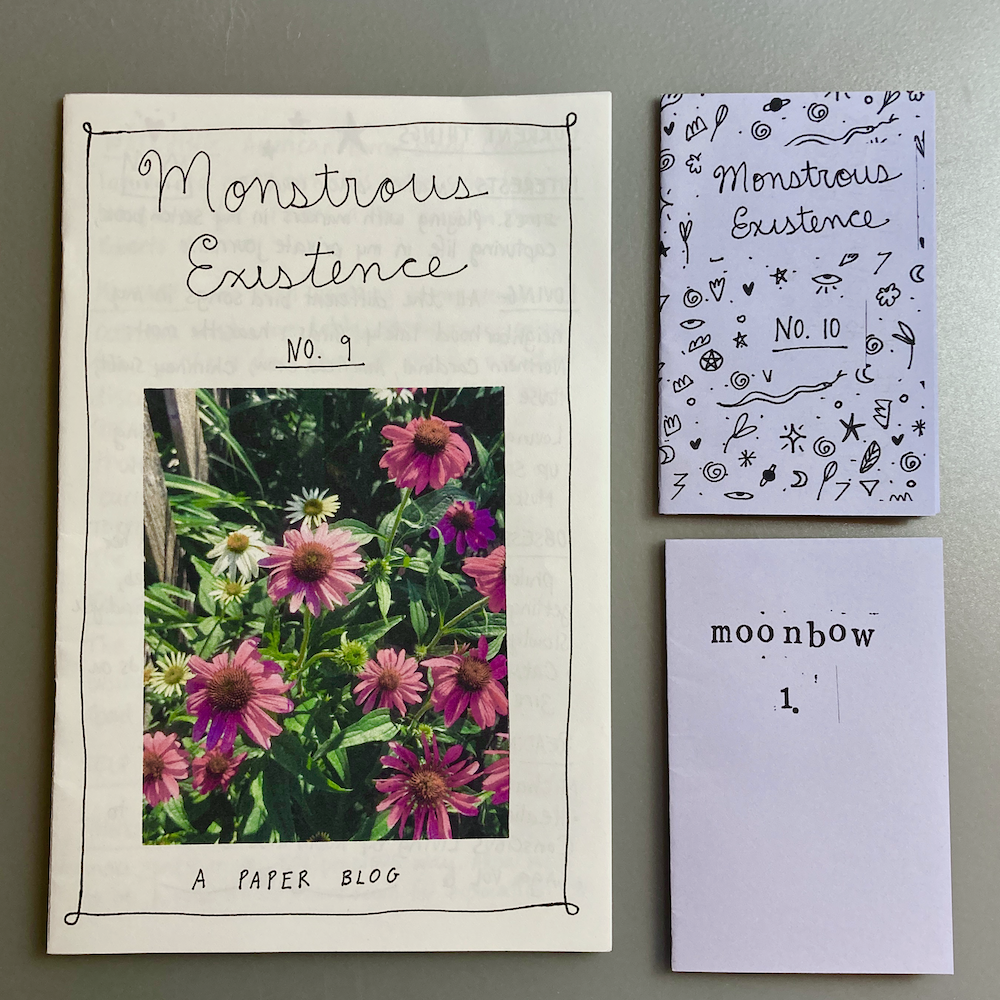
From Veronique:
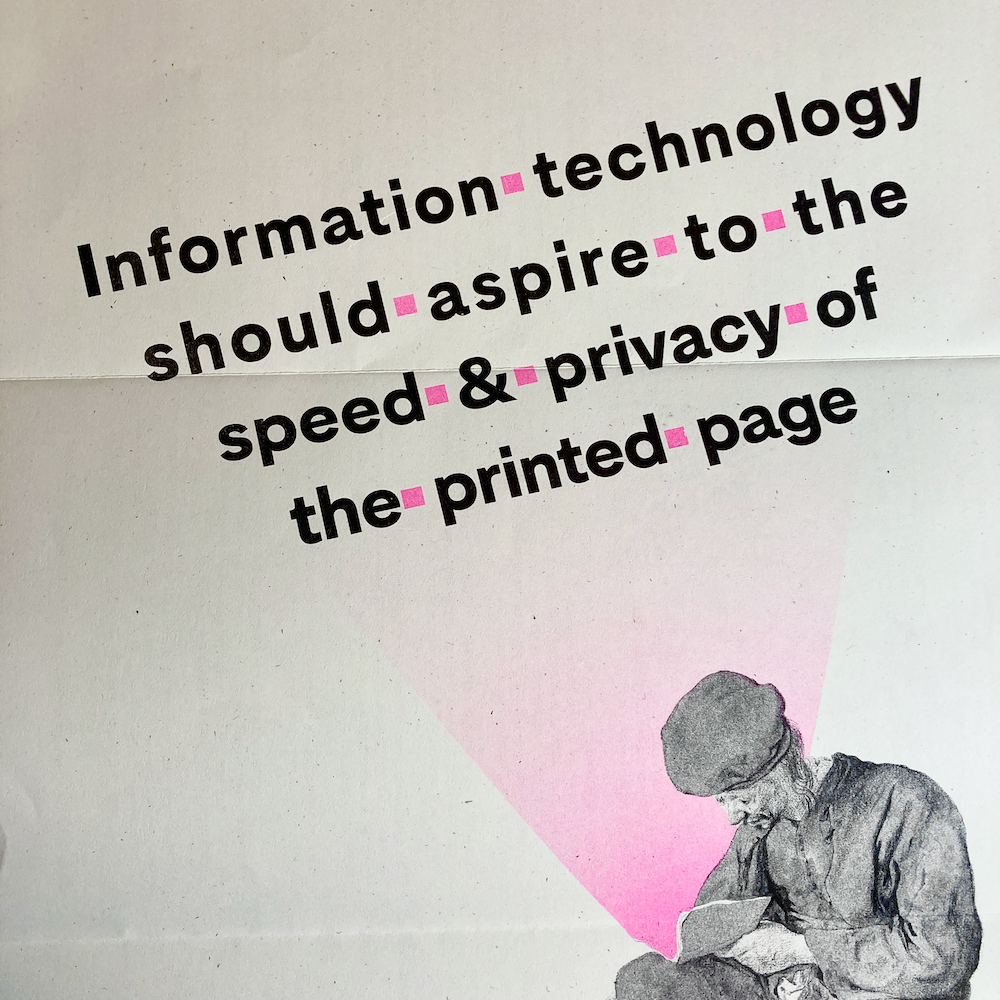
Robin Sloan makes large tri-fold zines where one side is a poster and the other side is long-form text on a subject. Aspire is about creating e-books that match the “speed, privacy, and reliability of the printed page.”
📺 I finished watching Haven Season 5
Strong character-driven stories, all the way to the end of the series. I really miss when sci-fi shows were written like this.

Finished reading: Unthink by Erik Wahl 📚
I picked this up at the public library without knowing anything about it. The book is mostly made of up anecdotes and some historical references. It feels like a lot of snippets, which is not what I want out of a book. But here’s a quote I liked:
Intellect without intuition is a smart person without impact. Intuition without intellect is a spontaneous person without progress.
If you’re at the end of a couple rolls of washi tape and you don’t know what to do with those little amounts, stick them on a piece of paper.
Line them up. Make a pattern. Overlap them. Whatever you want.
It’s very satisfying.
You’ll have a colorful piece that can be a background or cut into shapes.

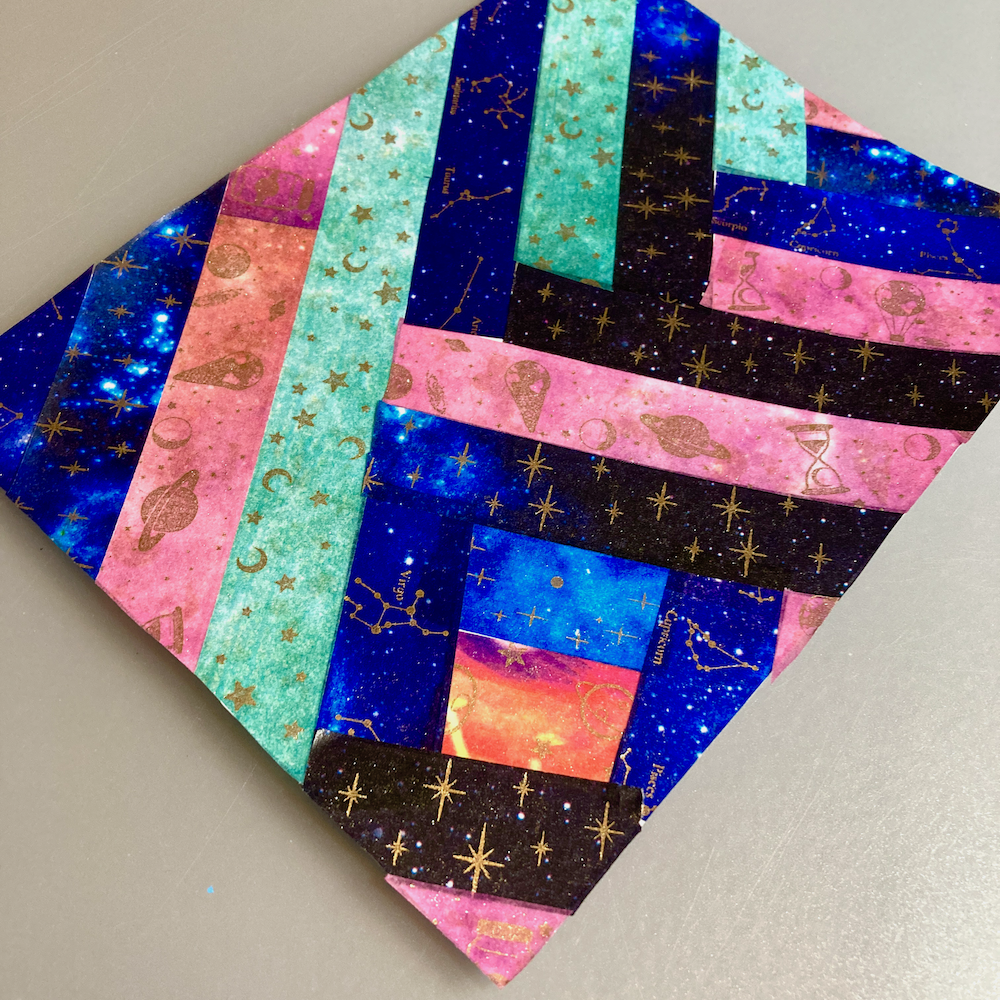
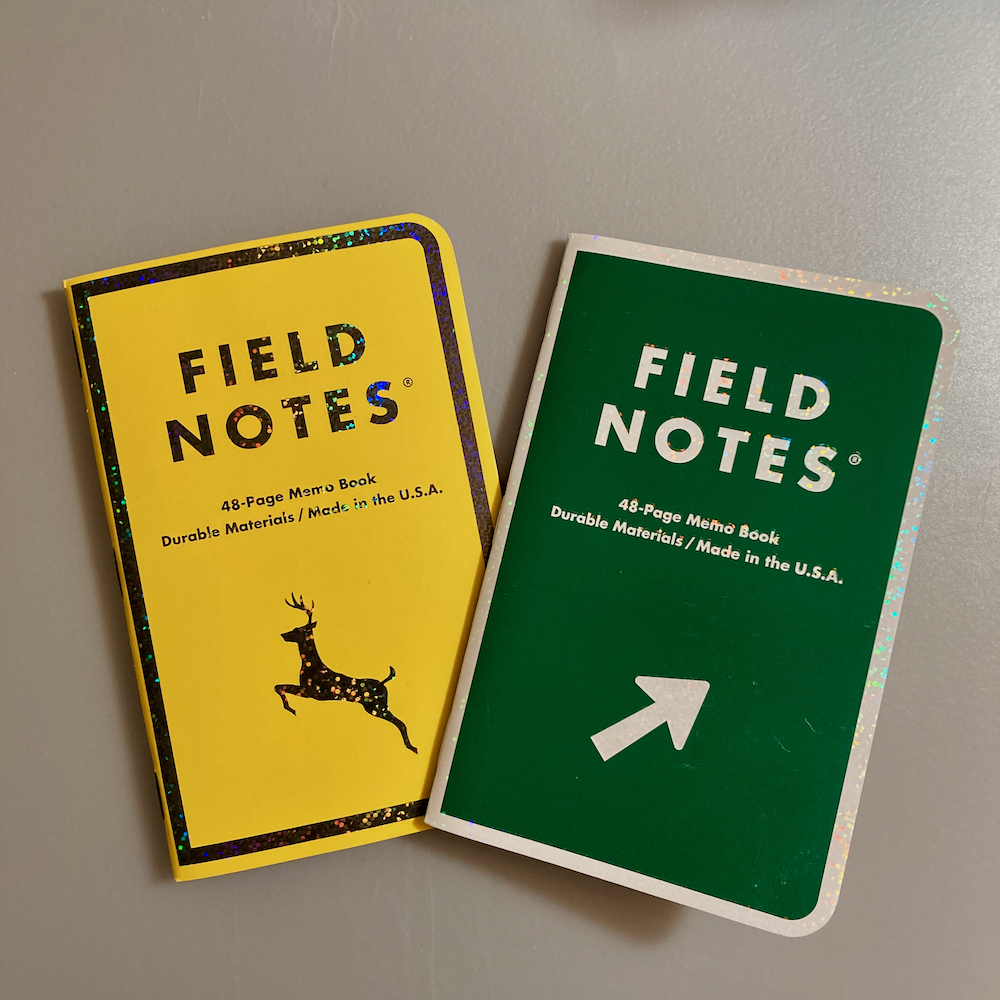
For the past few months, I’ve been keeping a work log in a Field Notes pocket notebook.
One page per day. At the top of the page, I list meetings I have that day. The rest of the page is a list of project tasks that I completed. It’s a Done list. Not a To Do list.
I don’t log every little task. If I spend a lot of time on miscellaneous emails or following up with people, I just write “email admin” or “follow-ups” as one line item.
I don’t log time, unless I’m working on something that’s not usually my responsibility.
Every page is a simple list, so logging doesn’t take a lot of time. It doesn’t feel like a chore.
Every few weeks, I review pages and look for patterns. What kinds of tasks have I been doing a lot? Am I doing the right mix of work? What work has led to positive impacts?
I’ve been logging and reviewing like this since May. I do a lot of different kinds of work in my position, so it’s helpful to have a place where I can review what I’ve been working on.
In the past, I tried more detailed logging and tracking time for all tasks (even though my job doesn’t require it). But that made logging feel like busy work. This simpler method works much better for me.
🍿 I watched Karate Kid: Legends (streaming on Netflix). Overall a fun movie with a great cast, but the pacing feels rushed sometimes.
Jukebox the Ghost released a new album! Phantasmagorical Vol. 1
📺 I’m re-watching Haven for spooky, fall vibes and solid sci-fi/fantasy storytelling. 😃
I painted a piece for a community art exhibition called “Connecting the Dots.” Each participant received an 8-inch circular canvas and randomly chose a card with a color on it to be the dominant color in the piece. I got green.

We could use whatever materials we wanted and interpret the theme however we wanted.
Here’s my finished piece, titled “Subte Life.”
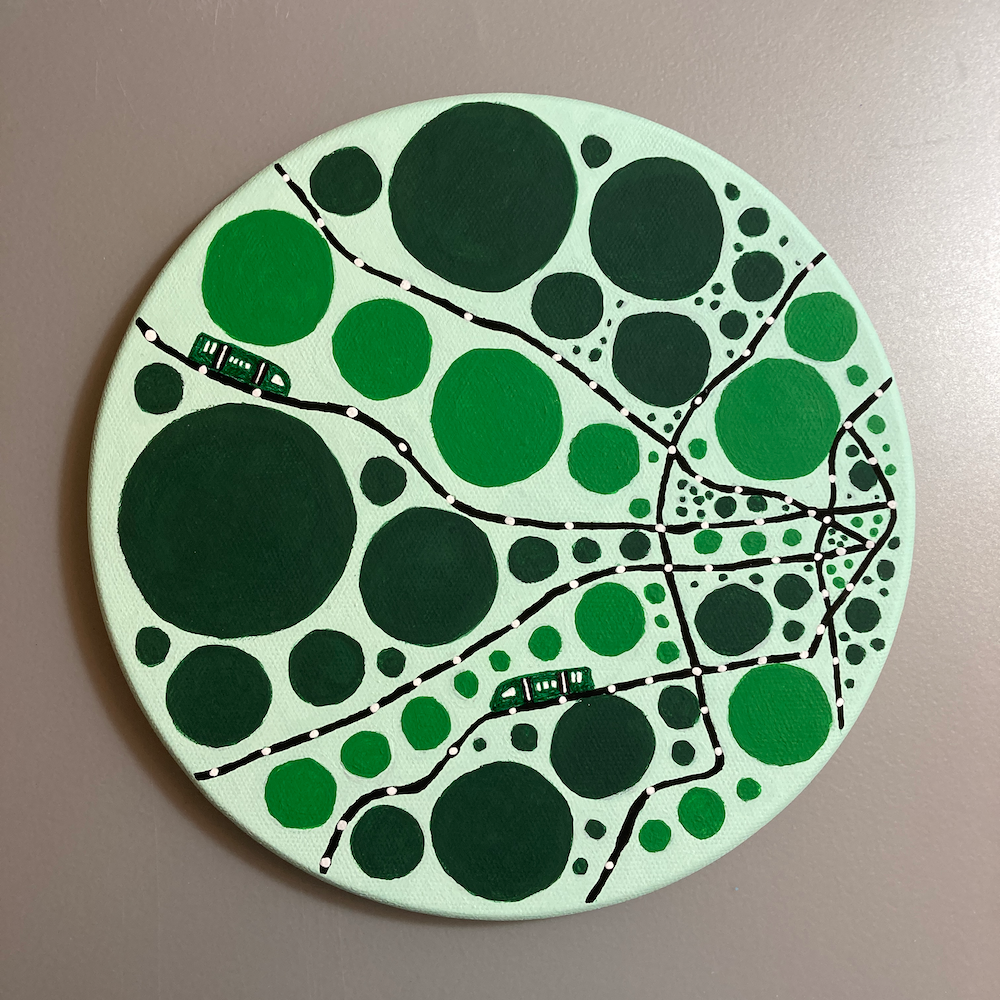
The lines on the canvas are the subway system map in Bueno Aires, Argentina, where I studied abroad in college and used public transportation daily. The subway connects all the parts of the city. Everyone who uses the subway is connected throughout the day.
I wanted shapes to fill the spaces between map lines, and circles were appropriate for the “Connecting the Dots” theme. The smaller circles represent more crowded areas of the city. Larger circles represent areas that are more spread out. (Generally speaking—I didn’t base it on city data.)
I painted the whole canvas in pale mint green for the background color.
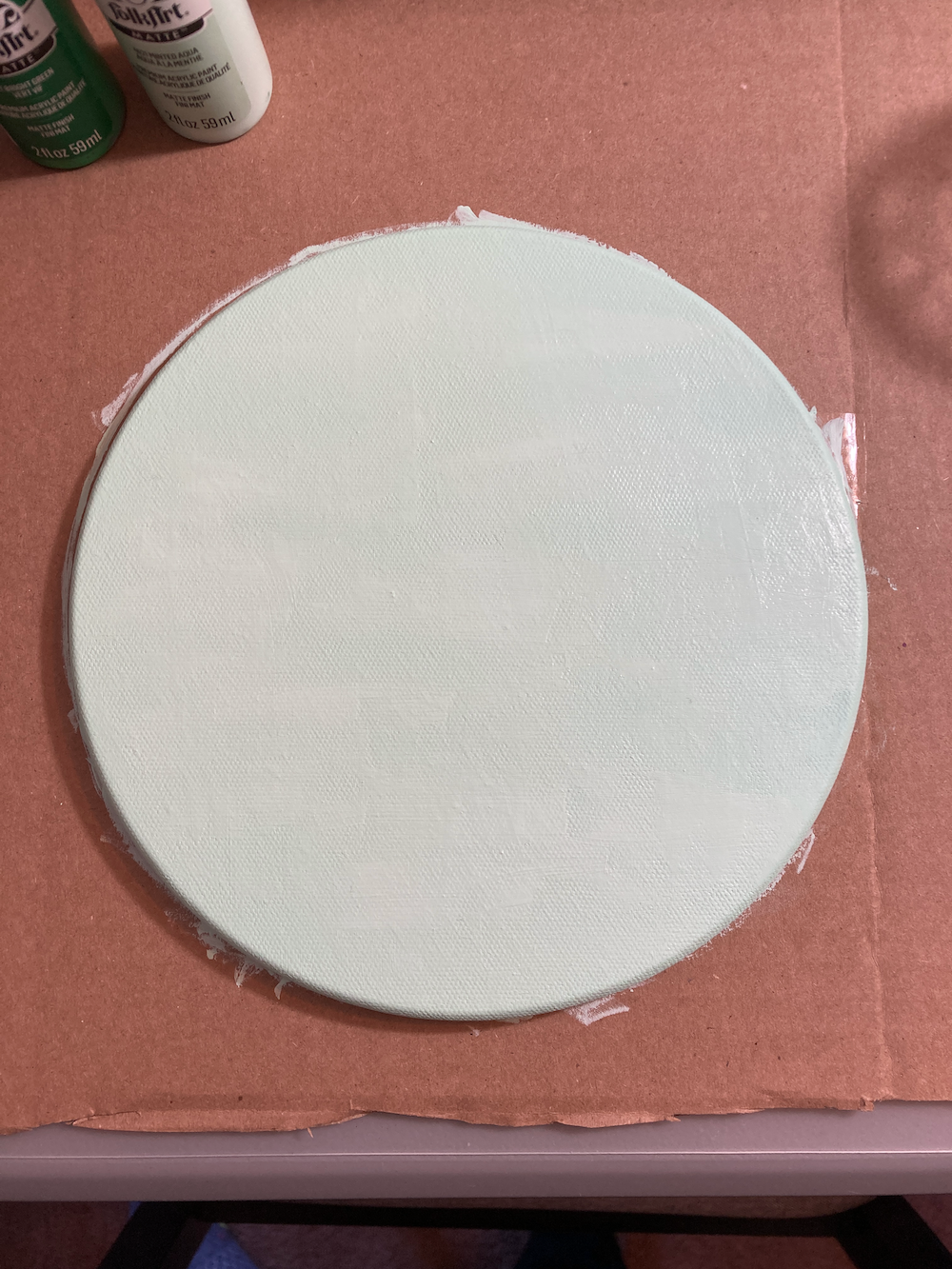
I used tracing paper to transfer the subway lines to the canvas. Then I traced circle stencils in different sizes.
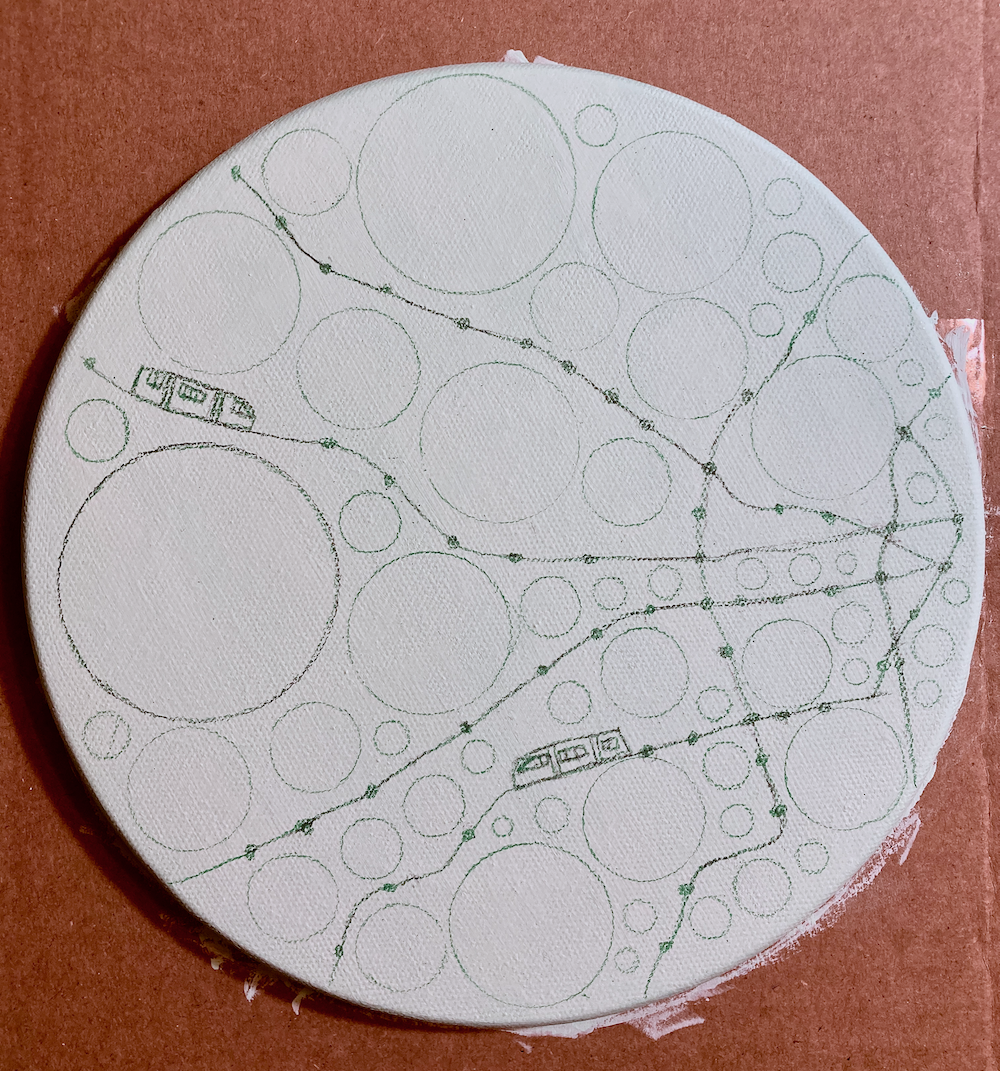
I painted the dark green circles first, so I could make sure I alternated shades of green between segments.
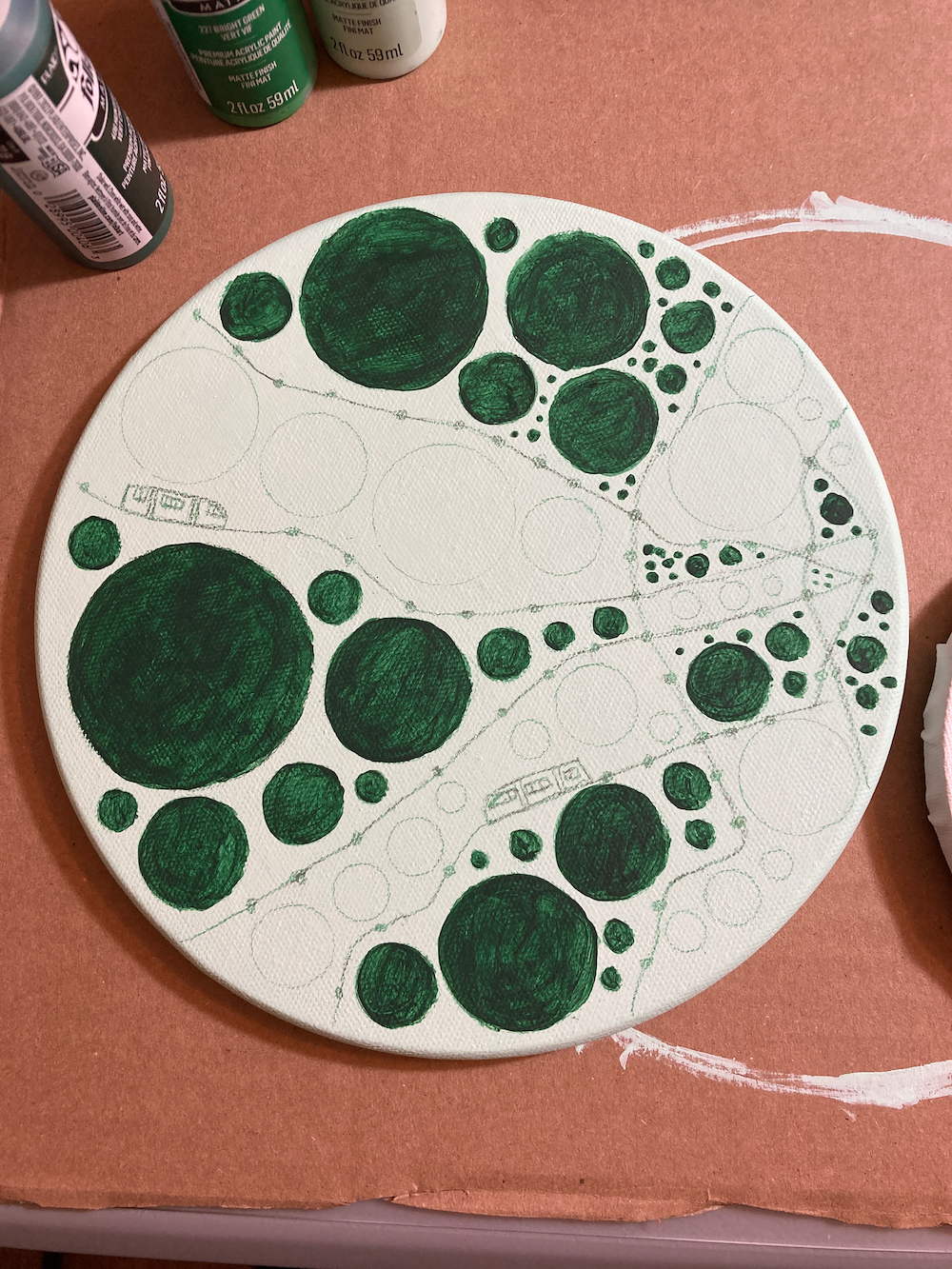
I ended up doing 3 to 4 coats on the dark green circles. For some reason, the paint was streaky and the background showed through until I painted over each circle multiple times. The lighter green circles only needed 2 to 3 coats.
The exhibition includes over 60 works. It’s on display in October at curio, a gallery and art supply shop in Lancaster, Pennsylvania.
You can see images of the exhibition on curio’s Instagram page. If you’re near Lancaster, go see it in person!
Pink Eraser Artober Day 3 - jellyfish
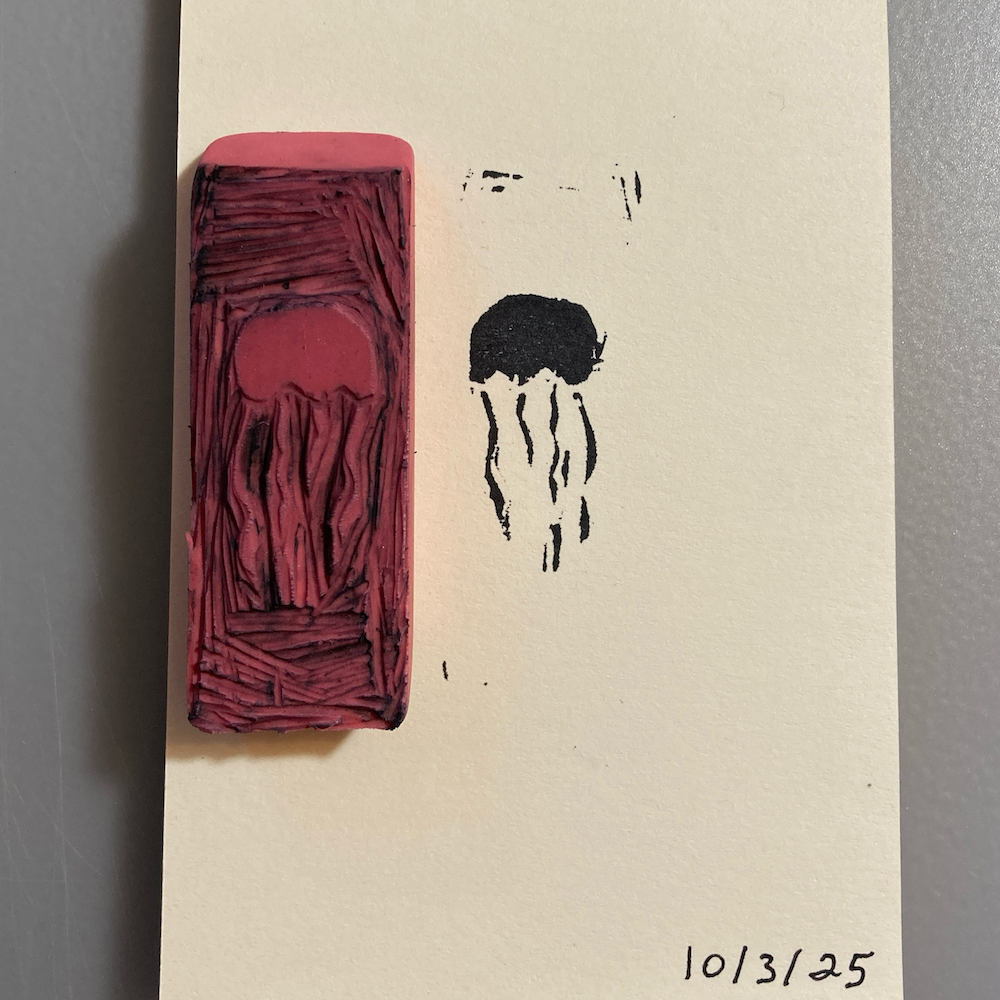
Pink Eraser Artober Day 2 - bunny
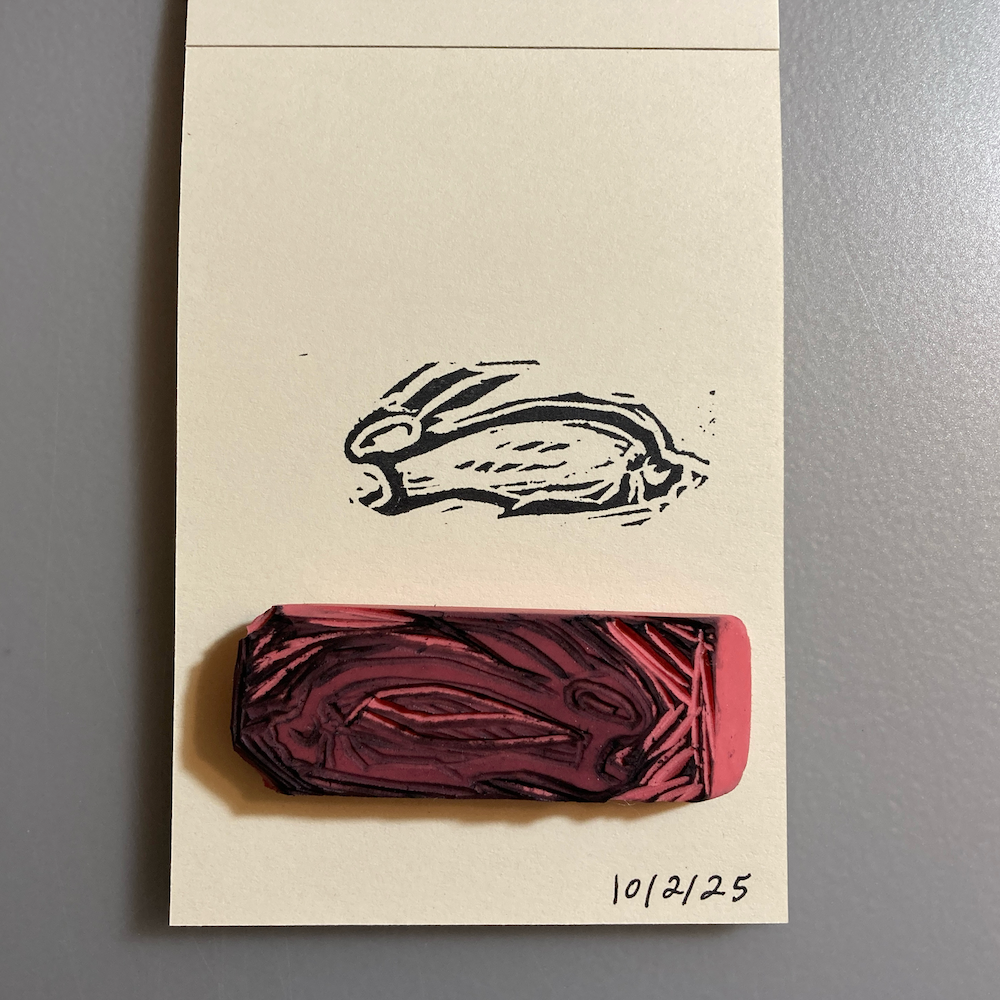
Every year in October, a few art challenges circulate on social media. I did Inktober a few times, but I realized I don’t like the pressure of a daily drawing challenge.
I found out there’s an October challenge to carve a stamp out of a pink eraser every day. I got a set of carving tools earlier this year but haven’t made many stamps. So this is a good opportunity to practice. But I’m still not going to shoot for every day.
Day 1’s prompt is fish.
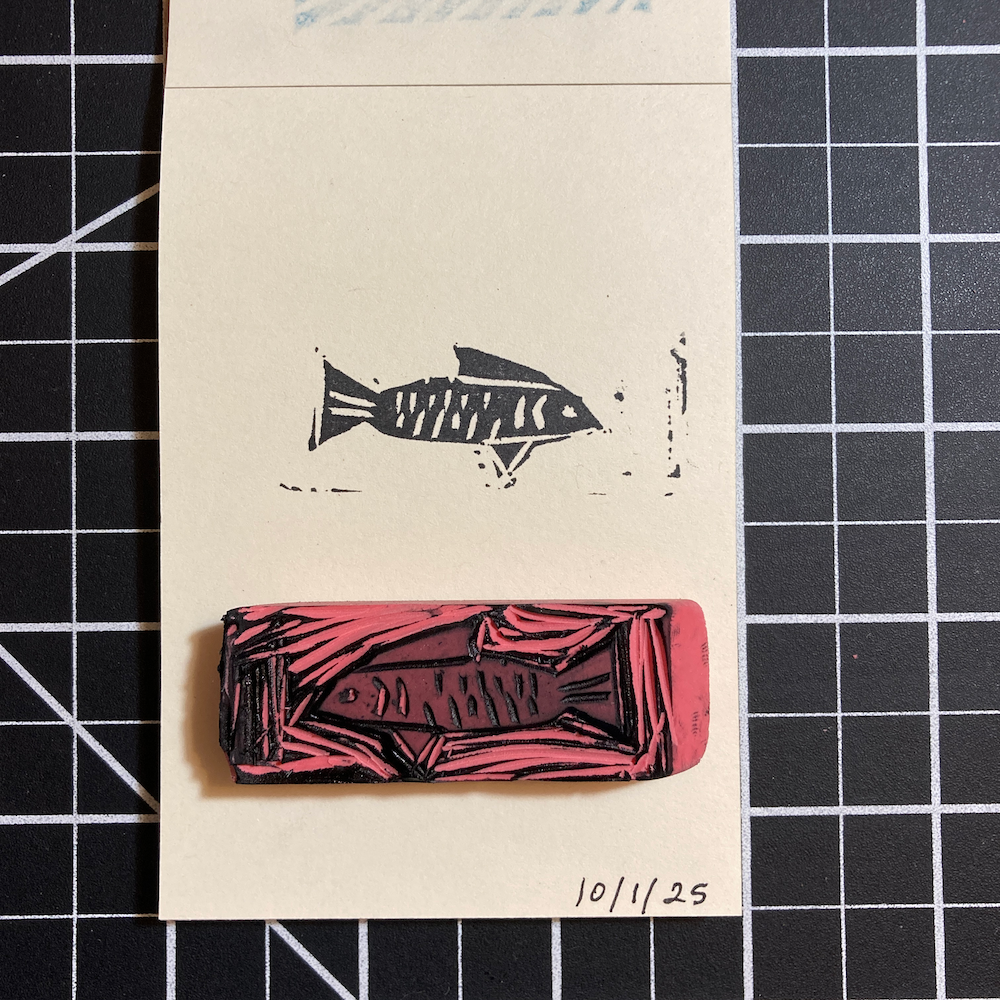
Here’s the full prompt list from pinkeraserart on Instagram.
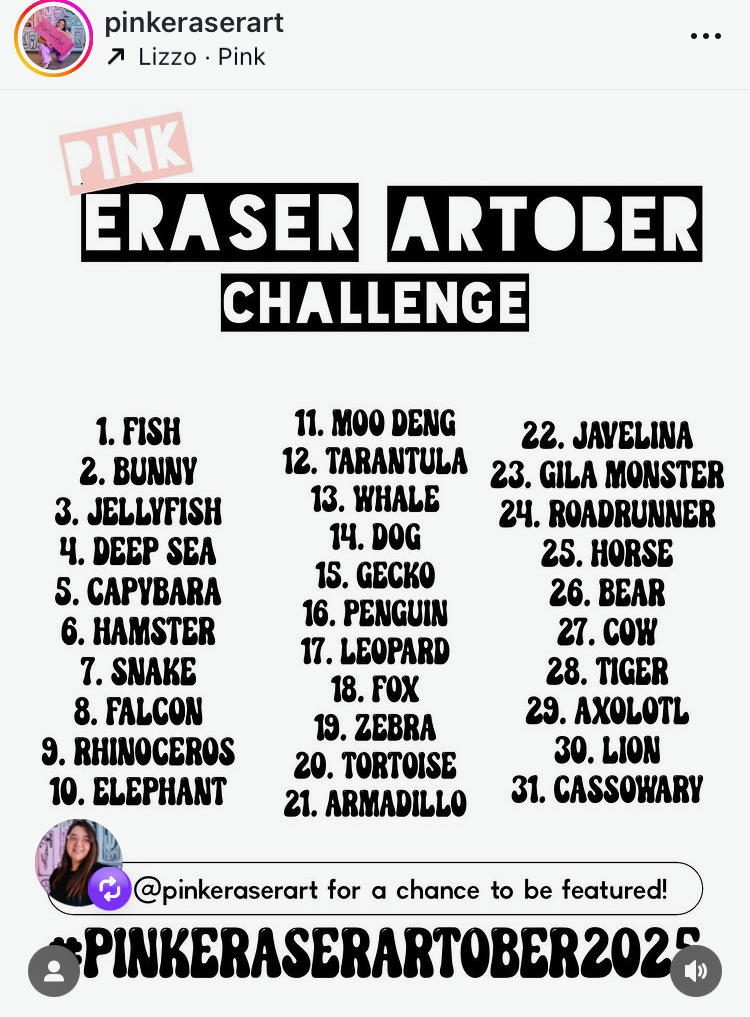
Site update: I moved my posts about drawing with Posca markers to kalikambo.com. I backdated them so I can keep the original post date. You can see them in the drawing tag.
This is dreamy and sad at the same time.
I updated my Now page. 💫